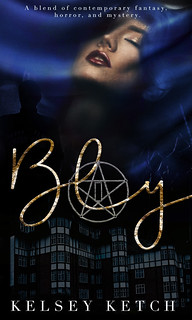Celebrating Sci-Fy Genre with Frankenstein and Mary Shelley
Why Frankenstein and what do you think you add to the tale as
originally told by Mary Shelley?
An April 1818 review of Mary Shelley’s Frankenstein:
Or the Modern Prometheus in The British Critic: ‘The writer of it
is, we understand, a female; this is an aggravation of that which is the
prevailing fault of the novel; but if our authoress can forget the gentleness
of her sex, it is no reason why we should; and we shall therefore dismiss the
novel without further comment.’
Mary Shelley shocked, disconcerted and excited the booklovers and
literati of the period when she breathed life into her wretch. Not only because
she was a women—a girl of eighteen years—but because she advocated and opened discussions
about deep-rooted beliefs and uncertainties in theology, science, the plight of
mankind, and the social acceptance of those that are different.
By comparison, the readership of the 21st Century is well
acquainted with the properties of electricity, anatomy, organ removal and
replacement, resurrecting life in those whose hearts have stopped, artificially
keeping bodies alive, banking or freezing body parts for later use. To some
degree it is also more open to those that are different, either by origin,
belief, gender, or physical attributes. And yet there are still prejudices and
thought processes that warrant further dissection and discussion based on Mary’s original thesis.
The wonder and sheer bravura of Mary’s iconic work is
magnified to 21st Century heights by Fire on the Water: A
Companion to Mary Shelley’s Frankenstein, as it reveals the
terror that truly occurred—peeling back history and knowledge to firmly
position the reader as one of Mary’s contemporaries,
so that they may sense the full scope of abhorrence, fear and astonishment
incited by her words.
Mary’s own thoughts careened almost out of control.
“Why would you harvest such body parts?”
she whispered to her muse, staring at her reflection in the blackened
glass of the window. “Arms from one body, legs from another.
Heart, spleen, and lungs from several others.”
She studied her diary and peered for several minutes toward her pen.
Ideas formulated within her mind. The horrors of surgical removal, the
unthinkable aspects of placing them together, much as a jigsaw puzzle, before
shocking them with animal electricity to once more bring life to something God
had made inanimate.
But would it be possible? Does the electricity of Galvani bring life
to dead flesh, or reverse the death of only those whose spirits have not yet
departed fully from this plain? Is the electricity itself life, or is the
spirit something different and unique that is somehow intimately connected with
the properties of that strange energy?
Mary thought of the sciences she knew intimately and started writing.
She thought of the apparent manias and subsisting horrors of recent
acquaintances that she knew merely by vicarious conversation.
She sipped at her
sherry, breathed deeply of the cigar-smoke-laden air of the parlor, and wrote.
She wrote as the card games came to an end. She wrote as the men finished off
the last of their cigars and retired to their private suites. She wrote
throughout the night, not daring to stop until her mind was exhausted of the
thoughts that filled it.
But this new companion-work, Fire on the Water: A Companion to Mary
Shelley’s Frankenstein, does not stop at revealing the sciences,
thoughts and horrific events surrounding Mary and her fellow tourists during
their infamous 1816 European tour and ghost-story competition. It also
catapults the disbelief, fear and unanswered questions into our own time,
asking whether Frankenstein could create his monster with modern-day
technology.
And finally, perhaps the companion piece dares to resolve something
that could not be attained by either Frankenstein or his wretch in the original
masterpiece: unconditional love.
Despite two-hundred years having passed since first publication, is
society now ready to confront the horror of true love?
Connect with P.J.
Parker
Contact P.J. Parker





Comments
Post a Comment